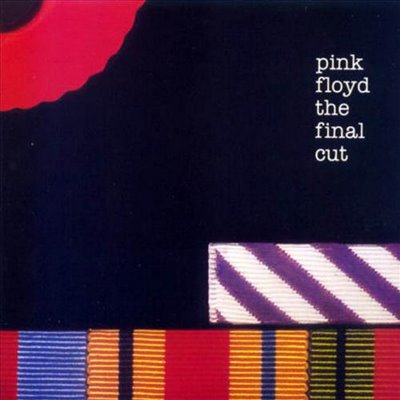
The Final Cut (1983)

1. The Postwar Dream
2. Your Possible Pasts
3. One of the Few
4. When the Tigers Broke Free*
5. The Gunner's Dream
6. The Hero's Return
7. Paranoid Eyes
8. Get Your Filthy Hands Off My Desert
9. The Fletcher Memorial Home
10.Southampton Dock
11.The Final Cut
12.Not Now John
13.Two Suns in the Sunset
*Bonus song on later CD releases
Rarely has a single album split a fanbase quite like this one. By now, the cracks in the foundation of Pink Floyd had turned into chasms. Richard Wright had been let go during the recording of The Wall, leaving the group officially as a three-piece. Yet even calling it a trio feels like a stretch. This is, for all intents and purposes, a Roger Waters solo album.
In fact, The Final Cut is the only Pink Floyd album written entirely by Waters. Whether David Gilmour and Nick Mason simply stepped aside or were pushed out remains murky. Waters insisted later that the band had chosen to move forward together, but it’s clear from the final product that Gilmour and Mason had minimal creative input. The record barely rocks—there’s almost no lead guitar or heavy drums. Instead, you get a lot of orchestration, a haunting piano, and an atmosphere that is somber and subdued throughout.
The theme is, once again, war—specifically, the failure to learn from it. Waters has long drawn on the death of his father in World War II as a source of inspiration and anguish, and here he seems to turn that personal pain into a pointed condemnation of global leaders. There are rumors that many of these songs were originally written for The Wall but were left off to make room. That seems likely, as many of the lyrical and thematic threads tie directly back to that album.
So no, this doesn’t sound like Pink Floyd as most fans knew it. It sounds like Waters. That’s why so many longtime fans dismiss this record outright. But if you can accept that, what you’re left with is a stunning album—deep, angry, sorrowful, and painfully human. Waters recreates the emotional landscape of The Wall, but this time he strips away most of the bombast. The pain is quieter but no less searing. Songs like The Gunner’s Dream, Your Possible Pasts, and Paranoid Eyes hit hard in the right way, letting the sadness wash over you rather than shout you down.
That said, the bitterness does boil over in places. The Fletcher Memorial Home takes a dark turn, envisioning a world where global leaders are rounded up and dispatched via “the final solution.” It’s a heavy moment, even by Pink Floyd standards, and it underlines just how far Waters had descended into despair and disillusionment.
The one track that feels like it belongs to the larger Pink Floyd catalog is Not Now John. It’s also the one moment Gilmour re-emerges from the shadows. Loud, brash, and rock-driven, it sticks out like a sore thumb—and yet it’s a welcome one. For many fans, though, it wasn’t enough. The band didn’t tour behind this album (how could they?), and by the time the dust settled, it was obvious that this lineup of the band had reached its endpoint.
The Final Cut might not be universally loved, but for those willing to follow Waters into his darkest places, it’s a deeply rewarding, if emotionally draining, experience.
Go back to the main page
Go To Next Review